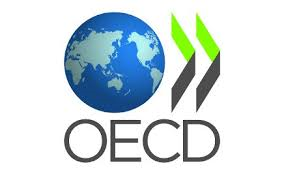Chemycal has been acquired by 3E
Learn MoreChemycal has been acquired by 3E
Learn MoreDiscover how Chemycal PRO helps you boosting your regulatory monitoring:

Foreword
The OECD has an important role in standardising the methodologies used for the testing and assessment of chemicals. The Working Party on Manufactured Nanomaterials (WPMN) has been considering how best to proceed regarding manufactured nanomaterials (MNs) for more than a decade. This has included exploring a range of different MNs in existing tests, and asking if test methods need to be adapted to work better for MNs, or if new tests more relevant to the specific characteristics of MNs are needed. The WPMN also has a weather eye on the integration of testing so that overall testing strategies can give reliable and useful assessment of MNs. In this regard, there has been much effort on the physico-chemical properties and the toxicity of MNs. However, the aspect of bioaccumulation needs more attention.
Effort started on the topic of bioaccumulation during an OECD Expert Meeting on Ecotoxicity and Environmental Fate [ENV/JM/MONO(2014)1] hosted in Berlin in 2013. It was soon realised that the thinking needed to go beyond simply validating the existing fish bioaccumulation test for MNs. In fact, the entire logic for the bioaccumulation testing strategy needed some longer consideration. The idea of an integrated and tiered approach to bioaccumulation testing for MNs was proposed to the WPMN in 2014, with the UK leading and co-leads from Spain and Finland. At that time, existing data on the bioaccumulation of MNs in fish was very sparse, and it was also unclear if invertebrate bioaccumulation tests would work for MNs. The physico-chemistry of MNs with respect to bio-accessibility was poorly understood, but it was clear that the log Kow test was problematic as a ‘chemical trigger’ to initiate testing. A review paper discussed the ideas and possible approaches for a tiered approach to bioaccumulation testing was published (Handy et al., 2018).
CONTINUE READING ON: one.oecd.org2013 © MyChemicalMonitoring. ALL Rights Reserved. About Us | Terms and Conditions